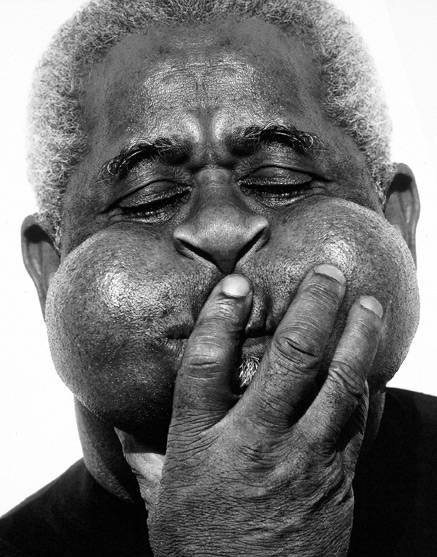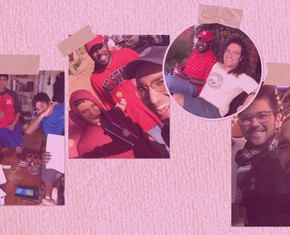The views expressed in our content reflect individual perspectives and do not represent the authoritative views of the Baha'i Faith.
Have you ever worked in an environment that made you want to sacrifice everything to do your absolute best?
That feeling, according to the Baha’i writings, “emanates from the breaths of the Holy Spirit:”
Another unity is the spiritual unity which emanates from the breaths of the Holy Spirit. This is greater than the unity of mankind. Human unity or solidarity may be likened to the body whereas unity from the breaths of the Holy Spirit is the spirit animating the body. This is a perfect unity. It creates such a condition in mankind that each one will make sacrifices for the other and the utmost desire will be to forfeit life and all that pertains to it in behalf of another’s good. – Abdu’l-Baha, Foundations of World Unity, p. 67.
At Harlem Preparatory School, we were blessed with many talented individuals who sacrificially dedicated themselves to the mission of the school, and contributed far beyond what their jobs required to assure the success of the students. Ed and Ann Carpenter, the incredibly dedicated African-American Baha’is who ran the school, made enormous sacrifices in their personal and professional lives to make sure the kids we taught succeeded.
I worked well with the Carpenters; but I preferred to stay in the background, especially given the racial sensitivities of the times and the place. I tried, though, to hire the very best and most spiritually-motivated teachers and staff I could find.
One of these was George “Sandy” Campbell who had considered a life in the priesthood but found too many inconsistencies to stay in the Christian faith. His life took a decisive direction when we hired him at the Prep to teach English. He found his true calling there, and at the same time he also became a Baha’i. So began six fruitful years of teaching in the English department of the Prep. His courses opened the minds of many of his students.
John Czerniejewski, a gentle giant who had come from a Polish family, joined the faculty and later became a Baha’i, along with the rest of his family. Though he was a complete stranger to Harlem, John acted like he belonged there. Once, during a stick-up, he simply walked confidently around the young man, ignoring the threat. Nothing could dissuade John from his commitment to the school. In addition to his hearty laugh, his humorous stories, and his imitation of the Three Stooges, students appreciated his dedication to creating interesting science experiments for them.
A very young Naledi Raspberry arrived at Harlem Prep in 1970, barely older than her students. Having grown up in a sheltered environment in Kansas City and Vassar College, she found the world of Harlem to be much rougher than anything she had known. She rose to the occasion by encouraging her English and drama students to include their own experiences in their work; one class wrote a play together based on their lives. She also introduced them to live theater by taking them regularly to the National Black Theater located nearby.
We couldn’t have done it, though, without the sisters of Manhattanville College, who provided critical assistance to the successful founding and launch of the school, and provided essential human resources. Because Vatican II mandated that the church become more involved directly in the life of society, the sisters did not live in a convent, but rather in an apartment in Harlem. They drove to school in an old Dodge, arriving earlier than any other staff and leaving later. Their work was totally selfless—they even sometimes contributed their own pay to the school. The New York Times chose Sister Dowd as one of its ‘Women of the Year’ for her crucial role in establishing the school.
Harlem Prep also became a place of dynamic interaction and discussion. For many students these interactions were the most important learning experiences of the school day. In line with the Baha’i teachings, Ed Carpenter insisted on courteous exchanges, so while the debates between students could get heated, they were always respectful and finished with everyone still friends.
The school’s flexibly-configured open spaces allowed for maximum interaction among students, and the holding of school-wide assemblies which were rich in discussion. Guest speakers included William F. Buckley, who exposed students to the conservative point of view; Julius Lester, a liberal writer, photographer, radio host, and teacher, who was challenged by some students who found him insufficiently militant; and Sen. Jacob Javits, a prominent liberal Republican who supported the civil rights movement and worked to create the National Endowment for the Arts.
But this vibrant, incredibly successful school came under great pressure when the American economy and, consequently, public goodwill took a downturn in the 1970’s. Corporations and foundations began to drastically limit their charitable contributions, and New York City slid into recession. Our corporate donations dwindled, and Harlem Prep had to find a permanent source of funding. Despite its terrific success—2,000 students were on the waiting list in 1970—the Prep struggled to maintain its sources of funding.

Dizzy Gillespie
So we held large fundraisers with Sammy Davis Jr., Melba Moore, the Isley Brothers, and the great Baha’i jazz artist Dizzy Gillespie. The distinguished Judge Mangum, whom I admired and who had often been the first black American appointed to senior positions during his career, worked hard for Harlem Prep. He and I met regularly with others at a restaurant near his house to try and figure out how to save the school. The looming solution was to have it incorporated into the public system, an option that no one wanted because we were sure that it would stifle its innovative spirit.
A frequent visitor and enthusiastic supporter of the school was Dr. Dwight Allen, the Dean of the Graduate School of Education at the University of Massachusetts. In those years he was in the forefront of innovation in education. Under him, the Graduate Program at Massachusetts grew to ninety full-time faculty, including a great increase in minorities and women. He had insisted on being able to hire new people from related professions such as lawyers, physicists, and sociologists, to broaden the perspective of the school. Allen had also introduced distance learning as an option for graduate study, the idea being that successful professionals shouldn’t have to leave their positions to go to classes.
Harlem Prep was exactly the kind of school that Allen was interested in, so he invited Ed and me to do our doctoral theses at the University. During his tenure as Dean, Allen attracted many students—especially minorities—to the education program. I wrote my doctorate on the background, successes, and challenges of the Harlem Prep school, completing my degree in 1974. That same year, Harlem Prep was taken over by the New York City Public School System.
Those seven years, from 1967 to 1974, showed me and many, many students and teachers what dedication and love could do.
















Comments
Sign in or create an account
Continue with Googleor